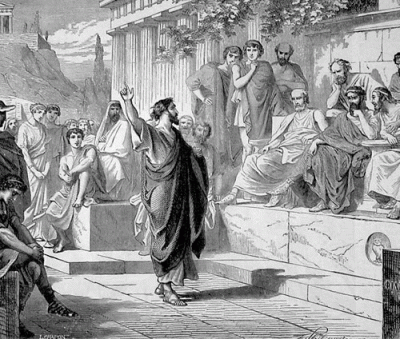Christian apologetics is defined by William Lane Craig as “that branch of Christian theology which seeks to provide a rational justification for the truth claims of the Christian faith” (Craig 2008, 15).Because of the nature of apologetics defending and promoting the Christian faith, it is understandable that the practice would come under scrutiny. However, one of the greatest adversaries of Christian apologetics stems from an unlikely foe. For the secularist is not the greatest adversary to the apologetic movement and neither is the skeptic. The greatest adversary to the Christian apologetic movement is often the Christian church itself! The very church that apologists defend is the one that seems to, at least in many locations, provide the greatest resistance. But why? There are four excuses that are often given by the apologetic antagonist. In this article, we will examine these reasons and offer some suggestions as to how the budding apologist could enlighten the antagonist as to the need for apologetics IN the modern church. These responses greatly resemble Tim LaHaye’s spiritual temperaments. It could be that these responses stem from those with the temperaments listed by LaHaye.
Fear of Offense: “But, you might hurt someone’s feelings!” (Sanguine Temperamental Answer)
Tim LaHaye writes that the extroverted sanguine temperament is “warm, buoyant, lively, and fun-loving…He is receptive by nature, and external impressions easily find their way to his heart, where they readily cause an outburst of response. Feelings rather than reflective thoughts predominate to form his decisions” (LaHaye 1992, 13). When a church member holds a sanguine temperament and knows little about apologetics, her resistance may stem from fear that others will be hurt by the apologetic endeavor. Sanguines do not want to hurt anyone.
The problem is: truth supersedes feelings. When a person is sick, it matters not whether one wants to be sick or not. It matters that the sickness is diagnosed and treated. The apologist will want to approach such a critic in two ways: show the nature of truth and the importance that people know the truth. First, sanguine church members need to know that truth is not based upon feelings. Norm Geisler writes, “Truth is found in correspondence. Truth is what corresponds to its object (referent), whether this object is abstract or concrete. As applied to the world, truth is the way things really are. Truth is ‘telling it like it is'” (Geisler 2011, 84). This description would fit the definition of the biblical term “aletheia” which means “that which is accordance with reality.” “Aletheia” is translated as “truth.” Secondly, sanguine members need to know that if Jesus really is the Son of God and the pathway to heaven (John 14:6), then the most saddening thing that could happen to anyone is that the person is held from the truth…especially seeing that the truth sets one free (John 8:32). Being set free by the truth will cause greater happiness than anything on earth. Truth is far better than patronage.
Fear of Control: “We’ve never done that before. My grandfather didn’t. Why should we?” (Choleric Temperamental Answer)
Another extroverted temperament is the choleric temperament. LaHaye describes those who hold the choleric temperament as “hot, quick, active, practical, and strong-willed…often self-sufficient and very independent…decisive and opinionated, finding it easy to make decisions for himself as well as for others” (LaHaye 1992, 16). Because of the choleric’s active tendencies, you will “rarely…find a predominant Choleric as a surgeon, dentist, philosopher, inventor, or watchmaker…they usually enjoy construction work…” (LaHaye 1992, 19). When it comes to the church, the choleric temperamental person may not see the practicality of defending the faith. He might say, “This church has been in operation for the past 100 years.” Yep, here it comes…”We’ve never done that before. Why should we now?” (Many of you in church work have probably heard that line many times before with different issues.)
When it comes to the choleric temperament, the apologist may have a more difficult time reaching him since he is so independent. A note of caution must be given concerning one with a choleric temperament. It may be that if a choleric is in leadership (which is likely since the choleric is a natural born leader), the apologist will want to ensure the choleric leader that the apologetics in no way threatens his leadership.
Also, the apologist will want to demonstrate the changes in culture. Approaches that worked in the 1950s no longer apply in the 21st century. As Paul wrote, “To the weak I became weak, that I might win the weak; I have become all things to all men, so that I may by all means save some. I do all things for the sake of the gospel, so that I may become a fellow partaker of it” (1 Corinthians 9:22-23). By demonstrating the need, the choleric will most likely hop on board with the program. The really cagey apologist will want to make the choleric think that adding apologetics was his own idea. In such a case, the ministry would be sure to succeed.
Another note needs to be added: some entire congregations hold a choleric temperament. These churches have often become so entrenched with a particular culture that it may be impossible to infiltrate. This is true of those in ultra-fundamentalist and ultra-liberal circles. In such cases, a particular culture is promoted over the Bible. I have heard stories where church members were shown that certain church practices were unbiblical. The members responded, “We don’t care what the Bible says. This is the way we’re going to do things around here.” In such cases, the apologist would be wise to leave such a place to begin an apologetic ministry elsewhere. Unfortunately, such churches will not be able to survive outside their culture.
Fear of Scholarship: “Reason is not necessary. Only faith is required.” (Melancholy Temperamental Answer)
The introverted melancholy temperament is one who is the “richest of all temperaments, for he is analytical, self-sacrificing, gifted, perfectionist type, with a very sensitive emotional nature” (LaHaye 1992, 22). To make matters more difficult with a melancholy apologetic antagonist is that “most of the world’s greatest composers, artists, musicians, inventors, philosophers, theoreticians, theologians, scientists, and dedicated educators have been predominantly Melancholies” (LaHaye 1992, 24). For this reason, I would dare say that most Christian melancholies would be on board with apologetics. In fact, I would not be surprised if most of those engaged in apologetics would fit the melancholic temperament. However, since melancholies tend to be perfectionists with a high-end for research, it may be that the melancholy that is antagonistic to apologetics may hold a distrust for science, philosophy, and reason itself.
The apologist would need to set forth a program showing that reason and faith are partners and not enemies. Millard Erickson provides three models concerning the relationship of faith and reason:
1. Christology from above is basically fideistic…it draws heavily upon the thought of Soren Kirkegaard. According to this position, our knowledge of Jesus’ deity is not grounded in any historically provable facts about his earthly life. It is a faith based upon the faith of the apostles as enunciated in the kerygma.
2. Conversely, Christology from below is primarily Thomistic. It attempts to demonstrate the supernatural character of Christ from historical evidences. Hence, the deity of Christ is not a presupposition but a conclusion of the process…
3. There is another possible model, namely, the Augustinian. In this model, faith precedes but does not remain permanently independent of reason. Faith provides the perspective or starting point from which reason may function, enabling one to understand what otherwise could not be understood (Erickson 1998, 690).
While I do not know that I agree that Thomism is a reason alone system (maybe more Aristotelian), Erickson shows that faith and reason in the Augustinian model can be partners in one’s exploration of truth. The apologist will want to share the compatability of reason and faith. In addition, the apologist will need to enlighten the melancholic antagonist to the wealth of evidence that exists for the Christian faith.
Fear of Unknown: “We already know all we need to know. No use upsetting the apple-cart.” (Phlegmatic Temperamental Answer)
Finally, there is the other introverted temperament known as the phlegmatic. The phlegmatic is one that is “calm, cool, slow, easy-going, well-balanced” (LaHaye 1992, 26). The phlegmatic is “annoyed by—and often confront—the aimless, restless enthusiasm of the Sanguine…ridicule—the gloomy moods of the Melancholy…delight in throwing ice water on the bubbling plans and ambitions of the Choleric…” (LaHaye 1992, 27). The phlegmatic antagonist is likely to say, “We already know what God wants us to know.” Or, “If people don’t want to be a Christian, you’re not going to make them one.” In other words, the phlegmatic antagonist doesn’t want to be bothered. At the root of these excuses may be a sincere problem of insecurity. Perhaps the antagonist fears that she does not possess the necessary qualifications to learn apologetics. Let’s be honest. Apologist: not everyone can go as deep in apologetics as you might be able to travel. For a person who only holds a high-school education…or one who may have even quit high-school…reading books by individuals who hold multiple doctorates like William Lane Craig and Oxford professor John Lennox would be intimidating to say the least.
The apologist would need to assure the phlegmatic that the apologist will be with them every step of the way. The apologist will be there to help them understand the difficulties that come. It may not be that everyone will be an elite apologetic Special Forces soldier. However, assure them that they at least need to be in the Christian apologetic army.
Conclusion
This article has offered four excuses that are often given by church members who are antagonistic to Christian apologetics. More excuses may be offered than just the four given. The apologist needs to understand that people in the church come from various backgrounds. Some may have faced some things that have rocked their faith. It could be that their faith is holding only by a thread. Others may have such a distrust of society that it may be difficult for them to open up to any form of scholarship. It is important for the Christian apologist to maintain patience with such individuals. Whether they know it or not…they need you. In fact…the modern church desperately needs you. That is why God called you to be a Christian apologist.
Temperament pictures belong to Tim LaHaye from his book Why You Act the Way You Do. All rights reserved.
Bibliography
All Scripture, unless otherwise noted, comes from the New American Standard Bible. La Habra: Lockman, 1995.
Craig, William Lane. Reasonable Faith: Christian Truth and Apologetics, 3rd Edition. Wheaton: Crossway, 2008.
Erickson, Millard. Christian Theology, 2nd Edition. Grand Rapids: Baker, 1998.
Geisler, Norman L. Systematic Theology: In One Volume. Minneapolis: Bethany House, 2011.
LaHaye, Tim. Spirit-Controlled Temperament. Carol Stream: Tyndale, 1992.












How does one come to the conclusion that apologetics is the other side of a coin eqaul to or in union with biblical exposition?
In Christ
keith
Because if the biblical record cannot be trusted, then biblical exposition is invalid. I believe the Bible because it is evidentially true. Because it is evidentially true, I believe that it speaks truth about God (which is why I believe it is God’s special revelation). That is, the Bible can be trusted to be inspired, infallible, and inerrant. Because the Bible is the Word of God, I believe in biblical exposition. You must have both in my opinion.
Blessings,
Brian Chilton
P.S., I have a podcast called The Bellator Christi Podcast that airs live every Monday at 5pm ET. Feel free to call in at (323) 784-9617.
At the risk of being polemic Martin Melancholy I would suggest that the role of Apologetics AS IT IS TODAY would become unnecessary if the Word of God was studied, applied, and taught. Holy Spirit imbued lives lived would promote Hope shown and known, provide God inspired questions, and reasons in response given as enabled! Hence 1 Peter 3:15 in view of the whole of 1 Peter.
While I certainly agree that the Church must do a better job studying, applying, and teaching the Word of God, such does not come at the expense of apologetics. Apologetics and Biblical exposition are two sides of the same coin. I liken them to the offense and defense squads of a football team–biblical exposition being the offense and apologetics being the defense–both are vital if the team is to win the game. Biblical exposition pleads the authority of the text by the text. Apologetics pleads the authority of the text by the evidential nature of the text. Thus, I do not think this is an either/or scenario, but rather a both/and. The nature of 1 Peter 3:15 will be handled in a future article as you bring up an important discussion.
Blessings,
Brian Chilton